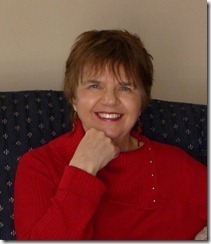What’s in a Name? Naming Your Characters—Guest Post by Jodie Renner
by Jodie Renner, freelance editor, @ JodieRennerEd
 Have you ever read a book where the name of the main character was jarring to you, seemed inappropriate, or just wrong?
Have you ever read a book where the name of the main character was jarring to you, seemed inappropriate, or just wrong?
Or have you mixed up two characters because their names were similar? Or said “Who’s that?” because suddenly the author started using a character’s nickname or first name, when previously all you knew was their last name? What you choose to name your characters can be the difference between annoying/confusing your readers and having the story flow naturally, with all the little details falling into place to make a seamless, believable story world.
A few years ago, I did a critique of a novel in which the cruel, abusive father was named “Danny” and his eight-year-old abused son was named “John.” I definitely thought “Danny” sounded much more like a nice kid than a nasty adult, and why not give the young boy a more kid-like name, like “Johnny”? Switching the two names would have worked fine, too.
Here are some tips for naming your characters:
- Avoid too-common and too-forgettable names like “Jim,” “John,” “Bill Smith,” or “Bob Jones.”
- Avoid really weird, unusual names that draw attention to themselves — unless it’s for a really weird character!
- Choose a name that fits the character’s personality and role. Don’t name your he-man hero “Harold” or “Wilfred,” or your despicable villain “David” or “Josh” or “Jordan” or “Richard” or “Jason” or “Matt” or any other very popular name. People don’t want a nasty bad guy to have the same name as their brother, boyfriend, husband or son.
- Avoid old-fashioned names for contemporary characters, like “Ebenezer” or “Cuthbert” or “Gertrude” or “Henrietta” or “Josephine.”
- Also, to reflect the actual makeup of North American society, be sure to use some characters and names from other ethnic backgrounds besides Anglo-Saxon.
- If you’re writing historical fiction, research common names for that era and location. Don’t make the mistake of calling your 18th-century heroine, for example, “Taylor” (used only for males in that era).
- Even for contemporary fiction, don’t name your 50- or 60-something male Jordan or Brandon or Justin or Tyler or Kyle, as those names weren’t popular for babies 50 or 60 years ago. There are several websites where you can find the most popular baby names for any given year. Here’s a good one:



